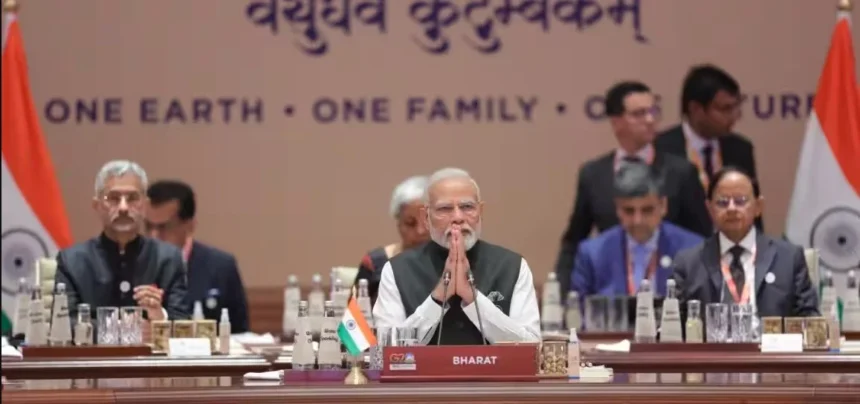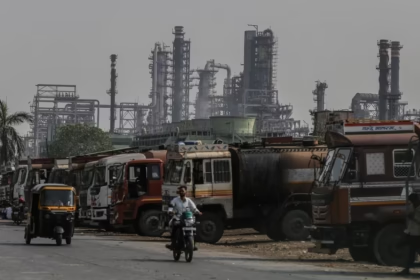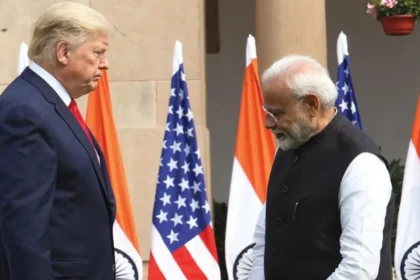India’s Strategic Autonomy: Gaza and Ukraine Conflicts That Define Its Global Power
There has been a great deal of gushing and confusion about Narendra Modi’s trip to the Shanghai Cooperation Organisation’s summit in Tianjin, and his meeting with Xi Jinping and Vladimir Putin. Missing from much of the analysis has been a small piece of information. In its coverage of the event, and all the people that Xi met, the People’s Daily placed the prime minister of Maldives on page one, and Modi on page two.
When the official newspaper of the Chinese Communist Party makes such a choice, it is meant to drive home a point both to its domestic and international audience. The SCO summit may have been important for Modi, but for Xi or the CCP, it was of secondary importance.
In fact, the meeting that may have mattered most was the one between Putin and Modi in the former’s limousine. No details have been released on the one-hour conversation, and none are likely to be, but there is enough publicly available information to hazard some guesses. China, India and Russia are the most important countries in the SCO as military and economic actors. This, though, hides the power differentials between them. China’s active military is larger than that of both Russia and India’s combined.
Its economy, at about $15 trillion, is nearly three times that of both India’s (3.9 trillion) and Russia’s (2.1 trillion) taken together. Furthermore, the Chinese military budget (314 billion in 2024) far outstrips that of both Russia (149 billion) and India (86 billion), while placing comparatively less strain on its economy.
Most attention has been focussed on Indian-Russian military and oil trade, but the really important point is that the two countries desperately need each other to balance (a little) China in the SCO as well as the wider regions of Asia where China now dominates. India’s efforts to be part of the US-led alliance actually strengthened its role as a Russian friend vis-à-vis China, and it should be noted that Russia has never criticised any statement of India’s, even those that were (through acts of wishful thinking and an effort to put diplomatically read more into words like, “This is not an era of war”) projected as critical of Russian doctrine.
India’s dismal performance in the ill-considered Operation Sindoor has blown a large hole in that. It lowered the threshold of war and ended the four-day conflict without achieving any clear objective, furthermore it also demonstrated how strategically isolated India was both in South Asia and globally.
The Trump administration has capitalised on that show of weakness by transferring the responsibility of its failure to do anything in the Russia-Ukraine conflict onto India. The transparently obvious ploy is designed to suggest that Trump is doing something, when he has manifestly avoided pressurising Russia while pushing Ukraine and Europe to give in to Russian demands. It deflects attention of his domestic critics to a foreign country, excellent for his xenophobic MAGA base, while at the same time making it difficult for his critics to defend a foreign country buying all on the cheap.
None of this directly threatens Putin’s prosecution of his war, but a weakened India is not in Putin’s interests. Putin might be dependent on China but he still needs India to manage an overbearing ally. Modi rode in Putin’s limousine, not the other way around. On the other hand, the dismissive treatment meted out by China is designed to show that an isolated and weakened India is of little concern to China, and that the big bet that the US-led alliance made on trying to build India into an anti-China has failed.
India and Russia may not have been “lost to deep, dark China”, as Trump put it, but they are certainly no constraint to China’s rising power in its near abroad or on the global stage.
Instead of strategic autonomy India has been reduced to increasing irrelevance without a strategy. This failure can be reversed, or at least confronted, to a degree. Although the damage of Operation Sindoor will resonate for some while, India does have some relevance on the global stage. Speaking for a just peace in Ukraine and against Israel’s eliminationist war in the Palestinian Territories are two obvious ways to do so. In neither case does India have to commit arms or treasure, instead only a legal and diplomatic initiative is needed. It is quite clear that whatever Putin’s delusions, his conquest of Ukraine will be resisted not only by the country but major European powers. Russia is not winning this war.
Israel, on the other hand, has had total military superiority over the Palestinians since the beginning of its war, and while nobody doubts that it can murder and forcibly displace millions of Palestinians its commitment to war crimes is steadily destroying any viable future it may possess except as a supremacist garrison state engaged in a forever war with all its neighbours. This is not a future that its allies – all of whom are complicit in its war crimes – will continue to swallow forever.
Sooner or later, they will wash their hands off of Israel in the hopes that the blood does not stick too closely to their hands. The possibility of a Palestinian state may or may not survive genocide, but the future of an Israeli state – without a radical reconstitution – is also not likely to survive a genocide it is committing.
None of this will be easy, and there are substantial risks. Despite the rising disgust among the public across the US and Europe with Israeli actions, the state is hardwired into the security architecture of US-dominated alliances. There is a reason why few independent countries have spoken out. In the Ukraine war, too, India risks being caught in the middle of the three impossible claims for security from Europe, Ukraine, and Russia and earning the displeasure of all. The long Indian silence on such issues has made it even harder.
Nonetheless, if India truly wants strategic autonomy, and not to be caught in the unpleasant choice of who to kowtow to – the Trump administration or Xi Jinping – the only way is to carve out an independent and politically consistent position on the great issues of our time. As for earning displeasure, the current 50% tariffs by the Trump administration are so high as to make any further tariffs minor by comparison. And while India needs Russia against China, Russia needs India too. In short, India has already managed to dig itself into such a hole that it is hard to see how things could get worse.
The real problem is that while India has the capability and the history to speak on the world stage as an independent power that has a stake in the world, the current Indian government does not. A government run by the likes of Modi, Shah, and Doval speaking about justice, human rights, and the rule of law is only likely to bring peace if the war criminals laugh themselves to death.
For more than a decade the Modi regime and its Sangh affiliates have spent their energy ranting against universal rights as a “Western” concept, undermining democracy, and perpetrating atrocities in Kashmir, against persecuted peoples like the Rohingya all while truly vicious bigots have been empowered to preach genocide and propagate hatred. Nobody is fooled any longer by the government praising Gandhi abroad while valorising his murderer at home. This government simply has no credibility on anything, especially not when it has tried – and failed – to seek exemptions for the Taliban, of all regimes.
The gulf between what India can and should do, and what the Modi regime can and wants to do, has never been wider. The road is there, the possibilities are there, but we simply cannot take it.








